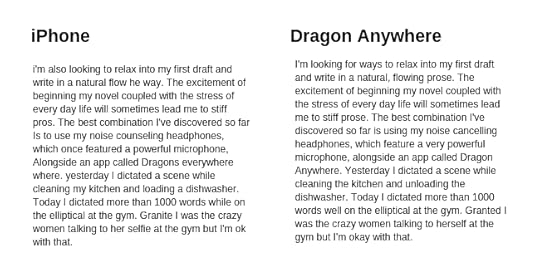Louise Dean's Blog, page 21
September 14, 2019
The New Publisher.
The Novelry is delighted to announce the launch of our own publishing imprint.
We have the inside track on some fine work at The Novelry, and it seems natural and right that we offer an additional publishing route for the wonderful work which comes to our attention here first.
For some while, I have been considering the route to market for works of literary fiction, those books which wouldn't automatically bag a mainstream publishing deal. These are the books which get awards listings and are thus propelled to success.
There are some wonderful small publishers taking a chance on books like these - Galley Beggar Press with its Booker Prize shortlisting for Lucy Ellman's book Ducks, Newburyport - Salt, Fitzcarraldo Editions and others but these publishers are only able to take on a handful of titles a year, sometimes just two or three.
More small publishers, bold and independent, are needed!
If you're writing commercial fiction, we will send you to our partner agents and onwards to the big publishers. But if that route isn't right for you, we will consider publishing you ourselves, and if we can't, we will send you on to our friends at Galley Beggar Press or Salt, for example.
To be able to take some of our most brilliant writers all the way from the twinkle in the eye of the author through to bookshelves and awards listings is going to be a very big adventure indeed.
Pomeranian Books.
Our mission is to publish novels of literary fiction of a very high standard.
Unlike other small publishers, we're focussed on the novel form, and therefore on story, story, story. Writers at The Novelry are well-drilled on how story works. I'm willing to back my own horses, all the way. I know they're thoroughbreds.
Our recent awards listings, offers of representation by agents and publishing contracts persuade me that we are beautifully placed, and poised for success as a 'writing house'. I hope that Pomeranian Books will become your favourite 'publishing house' in time.
We will be open to submissions from all aspiring novelists, so do see the submissions advice given at the Pomeranian Books website.
Pomeranian Books will offer all the good things you'd expect from a publisher, an advance, meticulous editing, due diligence registration, a high standard of production and wide availability and distribution. Beautiful, beautiful books.
Then there's the team. Homegrown. Recruited from within our own ranks at The Novelry, from writers I've known to work to a very high standard in all they do, with a passion for books. (As a tease - find out who at the Pomeranian Books website.)
We will submit our authors' work to the big awards as we can, as their publisher. Our authors will have the love and support of The Novelry behind them all the way, and as my writers will tell you, that's a very powerful force.
Pop into Pomeranian Books, and please do get in touch with us at the submissions page there if you have a manuscript you'd like to submit.
Happy days!
September 7, 2019
Good Morning!
Morning Folks,
Happy is the writer with a habit! The routine wins the day. Most of my writers follow the encouragement we give to write first thing, fresh from dreams, emboldened by coffee and in advance of the maddening crowds, the kids and the day job.
Part of our method for getting writers to complete their novels is blatant bribery. I suggest writers grant themselves a few perks during the writing of the first draft and bribe themselves out of bed. Upgrade your coffee-making, get a few indulgent pastries in. (No one said you'd lose weight writing a novel.) The course has you prepare your time and space before you start writing so that you get out of bed and go somewhere really special to you.
It's a great feeling to have your really important work out of the way before you attend to lesser emergencies! Don't switch on that phone, don't check email, take one hour for yourself and you'll see how enriching it is not just for your novel in progress but for your wellbeing.
This week's blog comes from our writer Linda in Zurich who has joined us for both The Classic Course and The Ninety Day Novel course.

Member's Story - L.L. Reeve
The early bird that writes the novel: A case for embracing the magic of 5 am
The birds are chirping, and it takes me a moment to realize that the faint noise is coming from my alarm clock, marking the beginning of a new day, rather than actual birds, as I am gently drawn from my dreams. I rub my eyes sleepily. My alarm clock reads 05.05. Trying to make as little noise as possible, I sit up, take a swig of water and carefully sneak out of the bedroom, so I don't wake my partner, who is blissfully unaware of the magic about to happen ten feet away from him.
I waddle into the kitchen, put on the kettle and brew myself a large mug of Yogi tea. I hop into the shower where I spend an obscene amount of time daydreaming, kindling my imagination until it is fully ablaze and I'm consumed by the energy coursing through my body, buzzing with anticipation for what is about to transpire. I wrap myself in a bathrobe and, at last, stand in front of the door that leads to my study: my library, my writing sanctum, my happy place.
I open the door and step into a different world. I enter the valley of a pine forest, a murmuring creek bids me follow it. As I wander, I can't fail to notice the beauty of the nature around me: the turquoise water at my feet, the treetops gently rocking above me, the birds tweeting and insects humming in the first hours of the new day. The terrain becomes rocky and my climb steeper and steeper. Above me, snow-covered mountain peaks bask in the first rays of sunshine. A raven-haired girl descends from them towards me wearing khaki breeches, and boots. Across her front, diagonally, there is a leather strap. Spotting me, she narrows her eyes and draws a sword ...

Good morning, writers!
All my life I've been a night owl. I am the type of person that just loses track of time and suddenly it's midnight and you realize that you've been faffing on your phone, reading a book or binge-watching Netflix for a good part of the night. I have become a bit more disciplined, or let's say mindful, about how I spend my time over the years, making my need for a good seven to eight hours of sleep a priority most nights, but never going to bed before eleven. At the same time, I have always been fascinated by early mornings. My job occasionally requires me to get up in the middle of the night to publish content on different social media sites (I work for an American company) and funnily enough I always love the days I get up at two or four and get on with my job, while the world is still sound asleep around me.
Over the years I made many half-hearted attempts to make getting up early a habit. Especially, as I got more into fitness, I sometimes needed to set my alarm clock as early as 5.30 am in order to get to the gym, work out for an hour, and still make it to work on time. I so desperately wanted to turn this into a habit! But these rare morning workouts were always the exception and most mornings I would happily snooze until 7 am, silencing my 5.30 alarm clock sleepily, making excuses after excuses as to why I needed to sleep longer.
But then everything changed.
Once I had made the decision to finally write THAT NOVEL (or in my case an entire, potentially five-part, fantasy series), I realized that I needed to completely overhaul how I spend my days to fit in enough time for The Novelry lessons, story mapping, world-building and eventually writing - all while excelling at my high-paced full time job, trying to keep up a regular exercise regime, finding the time to cook healthy meals and generally upholding the impression that I've got my shit together at the tender age of 34. Now, we've all heard the stories of how geniuses get up around 5 am to write, and while I'd normally snort at the suggestion with derision - when Louise suggested trying it in Lesson Four of the Ninety Day Novel course, it got me thinking.
I had been making excuses for why I hadn't been writing my novel for literally DECADES. I needed some drastic changes to accomplish my goal. In the end, the decision was very easy to set my alarm clock to 5 am the very next day. And the next day. And the day after. I've managed to do this for a whole month now, with blissful lie-ins until 6.30am on weekends. It would be a lie to say that getting up this early is always easy, because - quite frankly - it can be quite a challenge at times, especially now that the days are getting longer and it is still dark when my alarm goes down. Nevertheless, I've learned to set up my mornings in a way to make it as easy and enjoyable for me as possible.
Here's what I do:
My basic principle is to include as many nice things into my morning ritual as I possibly can. It starts with a comforting, steaming cup of tea. Since I've weened myself off caffeine about two years ago due to alarmingly high-stress levels, I am trying to limit caffeinated bevvies to a few times per week. And although I used to only drink tea sporadically it has now become an exciting part of waking up. I always have some fancy Yogi teas at home which are both delicious and always have a friendly message on their tags. Similarly, I won't just 'shower', I'll shower with a shower mousse that feels luxurious and smells divine. I do this because it's just nice having something to look forward to, even if you are still too tired to function. More importantly, I have worked hard to turn my writing space into my own little sanctuary where I feel completely at ease. I call it The Library because it's filled with books: my favourite childhood books by Alcott, Dahl, Ende, Rowling and Tolkien, my favourite books from my Uni days including anything from Austen to Woolf, quite a few works of non-fiction that have accumulated over the years, and my ever-growing Fantasy collection. It is also the home of all my nerd gadgets (Ye're a wizard, Harry!), a bed for reading and a little desk for writing. I make a big point to always keep it clean and tidy, even if the rest of the flat is dissolving into chaos. It is my little island of calm. This space is something I had dreamed about since my early days at Uni, reading Virginia Woolf’s 'A Room of One’s Own' yearning for enough money and space to follow my creative heart. Thirteen years later I finally have a steady job and a beautiful flat and enough discipline to make space for the yet secret worlds in my head.
Every now and then, I’ll change up my ritual a little bit. As already mentioned earlier, I try to exercise on the regular. With my novel project germinating every morning and frequently also at lunchtime, I was starting to struggle to get my cardio sessions in, as I always prioritise other kinds of workouts in the evening. I was beyond excited when I found out about the new audio feature that was recently introduced to The Novelry, that lets you listen to your lessons as well as read it, lets you translate it to multiple languages and even offers a couple of different English accents (that would be Scottish for me!). This meant that I could take my daily lesson with me onto the spinning bike that we have at home and thus kill two birds with one stone, by spinning and listening.

Actually, that is grossly simplifying the process. Not only does spinning help waking me up properly, and, next to multiple other health benefits, brighten my mood: cardio workouts are also proven to stimulate certain parts in your brain that are linked with creativity. So, I might quite possibly be making myself more creative while I am also doing something good for my health. It’s like my own novel writing catalyzer! Funny enough, I am typing these very words into my phone as I am pedalling away happily, sweatily and a little bit creatively.
We live in a pretty scary world. We are constantly flooded with awful news and it is very easy to be overwhelmed by self-doubt and negativity – I know I have been for many, many years. It is my goal to give myself the best possible chance to complete my book series. We all need a little encouragement sometimes, so instead of putting myself under pressure and forcing myself into a setup that makes me miserable, I choose positivity and a nurturing environment, where my fantasies can grow and take flight – while at the same time staying disciplined and focused.
I have never been as creative and creatively productive as I have at the moment and every time I get to enter my magical kingdom, I could weep tears of joy. I am finally home.
September 2, 2019
Pushkin snaps up debut by The Novelry graduate
Pushkin will publish Susie Bower's children's debut next year.
Susie decided to turn her hand to children's fiction and took the Classic Course at The Novelry. She wrote her novel with The Ninety Day Novel course and edited with our Editing Course, of course! The Novelry was pleased to introduce Susie's work to our partner literary agency PFD.
A home run!
Sarah Odedina, editor-at-large for Pushkin Children’s Books, has bought UK and Commonwealth rights in School for Nobodies from Silvia Molteni at PFD.
Odedina said: "This lovely novel has the perfect blend of excitement, emotional power and magic to hook any young reader and Susie’s super confident world-building makes this one of the most assured debuts I have read for some time."
Bower lives in Bristol and when she is not writing fiction she writes audio scripts, transporting children anywhere from the Jurassic age to the depths of the ocean. She is also known for writing and directing TV programmes for children at the BBC and Channel 4, where she won a BAFTA Award.
Susie Bower said: "I’m thrilled that Pushkin Children’s has signed School for Nobodies: the opportunity of being edited by Sarah Odedina, along with Pushkin’s reputation for amazing design and production values means that I will be bursting with pride when School for Nobodies is published next year."
Pushkin will publish in May 2020.
August 29, 2019
Congratulations!
Many congratulations to our beloved Louise Tucker who has written a novel that's winning the hearts of readers.
From The Bookseller:
Louise Tucker has won the inaugural Lost the Plot Work in Progress Prize for her "tender, moving, beautifully drawn" novel.
The award for unfinished manuscripts was launched earlier this year by Peters Fraser + Dunlop e-book imprint Agora Books.
Tucker wins a consultation with an Agora editor and a PFD agent. She was selected from 377 entries by a judging panel of Agora publisher Kate Evans, Bookseller Rising Star and PFD literary agent Marilia Savvides, author Laura Pearson, and book blogger Amanda Chatteron.
Her novel is described as a “touching tale of aging, grief, and self-discovery” about main character George, whose day of celebration turns into one of misery.
Tucker said: “I am so delighted to win the Lost the Plot Work in Progress Prize. The main character, George, has been in my head for a long time, and, when I finally wrote his story, I was hoping that people would love him too. It is wonderful to discover that they do.”
Evans added: “We’ve been blown away by the quality of the writing submitted to the inaugural Lost The Plot Work in Progress Prize. We set out to uncover fresh talent, interesting concepts, and stories that stay with us, and they delivered in droves. The shortlist was full of wonderful stories, and Louise Tucker’s novel is a tender, moving, beautifully drawn depiction of love and aging. I look forward to seeing more from this very talented author.”
Louise Tucker's Story
It began with The Bookseller. In April 2017, the magazine ran a story on a crazy old author planning to write a novel in ninety days and inviting other writers to join her with live daily confessionals ('lessons') sharing the real-life working process. On 5th April, the website crashed and Louise Tucker called me to find out how to join. The conversation is one we laugh about every time we meet, as I was slightly harried by the technical chaos. You could say we were immediately on very familiar terms.
Just over two years later, our story continues to unfold in The Bookseller with Louise Tucker rather than Louise Dean hitting the news pages, celebrating the success of the novel she started to write back in April 2017.
With Louise's very kind permission, I've put together a timeline of her writing story in her own words.
The Bookseller’s morning briefing mentioned a scheme with Louise Dean which promised me I could write a novel in 90 days. Since I had just read Stephen King’s On Writing, which pretty much said the same thing, that a book’s first draft should only take a ‘season’, I was intrigued. I also thought I had very little to lose.
I've wanted to write a book, specifically a novel, since I was 11 partly to see if I could, and partly because writing has often seemed the only thing I am any good at. I have tried pretty much every way of doing it: leaving a career and taking a year off to live in Paris and 'write' (I worked in a bar instead...) being supported by a boyfriend whilst I stayed at home and wrote; writing first thing in the morning whilst working in an office five days per week; joining evening classes. I never wrote a novel. I wrote hack books for other people, I wrote a memoir that didn't get published and I had pretty much given up.
Why now? For two reasons: one, I've just turned 50 and, since my father died tragically and unexpectedly at 59, I have always been very aware of the shortness of life and the fact that, at any minute, it may end. If I don't try soon, it's going to be too late. Second, I have very little work and I might as well make the most of it and try one more time. Third, and this is possibly the most ridiculous one since I work in publishing and know this is a very long shot, having turned fifty, having no pension provision, having no savings, I really really need to earn some more money, to try everything that might make me some money, because freelance editing is impoverishing me. See, told you it was ridiculous.
27th April 2017
It’s 6.30 am, it’s dark and windy outside, and I am sitting at my computer, writing. This is all The Novelry, and Louise Dean’s, fault. If you’d asked me a year ago if I was a morning person, able to get up and write before the day started, I’d have probably laughed. I was not a morning person, I had pretty much given up writing anything but a blog and, though I have wanted to write a novel since I was 11, I had never managed to get beyond several glorious concepts in my head, a few dull self-focused chapters thinly based on my own life, and the prospect of the launch party. As someone once said to me: ‘everyone wants to write a novel, but only if they can wake up one morning and find the finished manuscript by the bed’.
24 May 2017
Am finding the writing process completely fascinating but I am very behind on the posts and the reading...I could blame that on my flat being redecorated and my beloved moving in in 10 days but, having seen how much you do every day for this, I'm not sure those excuses are valid but right now am off to Chelsea for the day so better get dressed...
28 May 2017
I have been thinking about, or trying to write, a novel, possibly more in the Peter Cook way than any other, for most of my adult life. I have never got beyond the all or nothing approach: leave a job, write all day, earn nothing, fail, give it up for a year or six, dream, start again. I have never managed to make it a regular part of my life until now.
Why is this different? Because it focuses on the actions, the routine, the small achievableness of a daily process. Many courses do this but the key differences here are the fact that someone is nudging you to write every day and you are paying for that nudge.
Seven weeks in, this confirmed night owl gets up at 6.30 seven days per week, including holidays, to write six pages and has things in her writing that she's never had before: plot, more than one character and not all thinly-veiled versions of herself, a story and an ending in sight. And though I began by thinking I would just do this for three months, as per the course, now I can't imagine stopping.
I may not get a book out of it yet, but I have something more durable: a writing practice. I've tried many courses and this is the only one that has given me that. I don't know how it works; I just know that it does.
10 June 2017
Draft done. Sixty days. I have you and your brilliance to thank for that. Now the real work begins...
August 24, 2019
Our Literary Agents
A year ago, Peters, Fraser + Dunlop contacted me, taking note of the quality of work coming out of The Novelry and asked whether an association might be useful for all parties. So, I went to meet with Tessa David and Tim Bates of PFD on New Oxford Street and we had a chat about the kind of writing that excites us all. We agreed to work together to progress talent coming out of The Novelry, and I asked them for one thing; that the Novelry's graduates get VIP treatment. When I submit work on my writers' behalf, the agency should give us an expression of interest within two weeks.
Since then other agents have been in touch with The Novelry asking to be on our list for first sight of great novels as they emerge hot from our oven, and I've made contact with agents I know to be wonderful advocates of their writers' work in genres useful to my writers. The same deal applies to all - no slush pile! A two-week reading and response time (and gentle and courteous treatment of my writers).
We have seen the beginning of some beautiful relationships in the last year.
You'll all be familiar with the process which puts prose through its paces so that every novel we submit is in really great shape, but if you're not, you can take a look here.
I'm very proud of our agency list. Our agents cover the globe, working internationally and are AAA and AAR members. As individuals, they are known and vouched for by myself and The Novelry members. Working alongside our agents gives me a chance to keep an ear to the ground. From the very first chat with each of my writers I match their intentions for their book to a commercial sweet spot. It's our unabashed intention to get our writers publishing contracts, and it's a great joy and privilege for me to be able to make that call to say "THEY LOVE IT!"
Recently one of my writers described my role as being 'manager' of my writers' careers. I see myself as a proud mother. My writers find it amusing to call me 'Miss' after Miss Jean Brodie of Muriel Spark's eponymous novel, and I am very pleased to accept the ribbing. I am completely partisan, devoted to my writers, and thrilled at their successes. I am in the position of knowing how far each has come from the early days of nerves and doubt, they struggle through various personal difficulties and crises, overcome hardship, to ensure that one thing they mean to leave behind them, to speak for their time is as good as damn it. I never forget how blessed I am to be part of their story. To me, my writers are la crème de la crème, not just because of their literary prowess but for their indomitable qualities in the face of the tedious duties of non-fiction life. I know how hard they've worked, there's no 'luck' about their success. It's deserved. (I should add, we would never ask for commission from either party, I find the idea of it quite odious.)
Now, to some other fine people.
Our Agents.
Peters. Fraser + Dunlop (PFD.)
Peters Fraser + Dunlop (PFD) is a talent and literary agency based in London, England. One of the oldest agencies in Britain, dating from 1924, PFD was a co-founder of the Association of Authors' Agents, it is home to a distinguished and varied client list, including Jeanette Winterson, Ruby Wax, Steve Peters, Helen Rappaport, Simon Schama, William Hague, Sarah Raven, Twiggy, Sir Max Hastings, Chris Patten, Bear Grylls, Valentine Warner, Philip Norman, Graham Masterton and such estates as V.S. Pritchett, E.M. Forster.
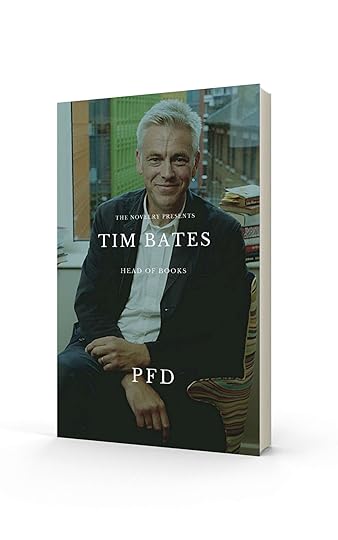
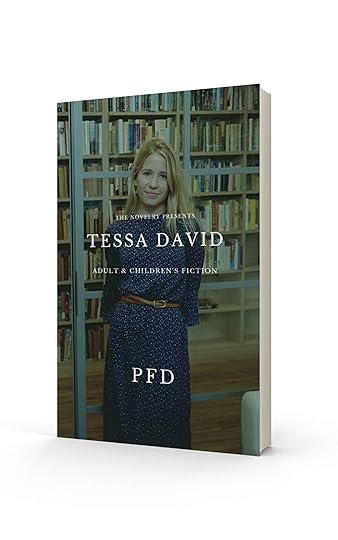
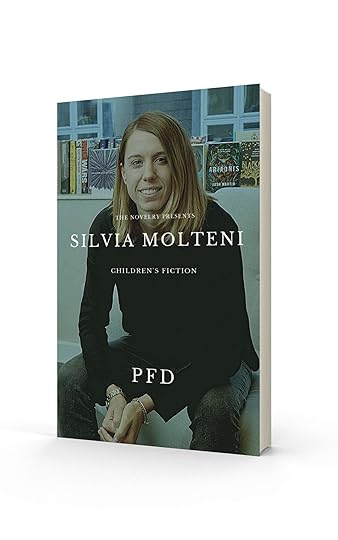
Tim Bates joined PFD after being an agent with Pollinger Limited for nearly 10 years. Before becoming an agent, he worked in various positions in publishing, including at Penguin Books, where he was Commissioning Editor for Penguin Classics. He has a very broad range of interests in fiction and represents many wonderful writers including Lesley Pearse and our very own Romla Ryan.
Tessa David is looking for literary, historical, high concept psychological thrillers and literary/ commercial crossover fiction. She has a weak spot for books set in wild and remote locations – think tiny islands or windswept moors; add in a murder or love story (or both) and she's hooked.
Silvia Molteni is the dedicated children’s books Agent at PFD and across MG and YA fiction, she is drawn to voice-driven and character-driven narratives, LGBTQI story-lines and characters, endearing narrators, magical realism and upmarket literary fiction. She's looking for Middle Grade novels, strong and diverse voices with brave narratives and contemporary and realistic settings, edgy, funny and moving Middle Grade fiction. Her client list includes our very own Susie Bower.
United Agents
United Agents (UA) is a talent and literary agency headquartered in Soho, London, England. In 2007 UA set up a literary division and further to the acquisition of AP Watt , now represents writers across fiction, non-fiction, history and children's books, as well as illustrators. Authors have won many of the world’s most prestigious literary prizes (including the Man Booker Prize, the COSTA Novel of the Year, the Women’s Prize for Fiction, the Windham-Campbell Prize, the Carnegie Medal and the Guardian Children’s Book Award) and appeared at the top of the Sunday Times and New York Times bestseller lists. Clients include John Banville, Julian Barnes, Tessa Hadley and the estate of Helen Dunmore.
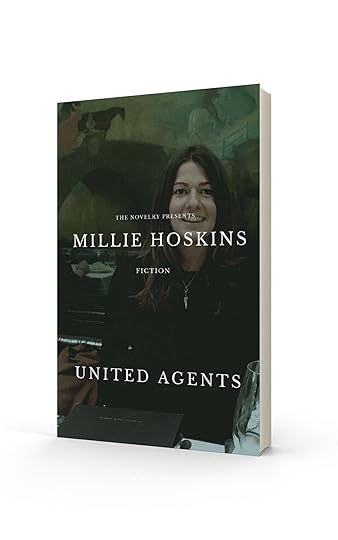
Millie Hoskins is seeking exciting new writers of fiction both commercial and literary and represents Philip Pullman, JP Delaney, Kate Saunders and our very own Cate Guthleben.
C+W
Conville & Walsh, C+W, is a leading international literary agency founded by Patrick Walsh and Clare Conville in 2000. Their clients include DBC Pierre, winner of the 2003 Booker prize, Sarah Hall, author of The Electric Michaelangelo, shortlisted for the 2004 Booker prize, S.J. Watson, author of Before I Go to Sleep, Stephen Kelman, shortlisted for the 2011 Booker prize and Esther Freud.
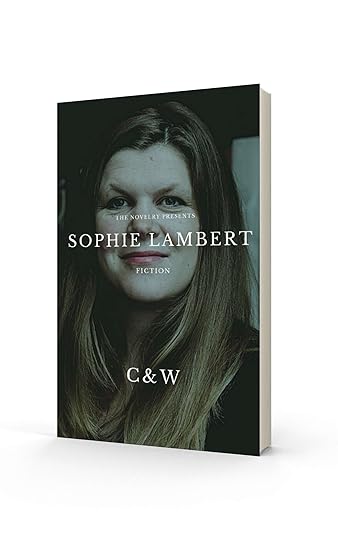
Sophie Lambert is looking for literary fiction, upmarket commercial fiction and crime fiction as well as novels that don't necessarily neatly fit into a single genre but that are strongly voice-driven. Her clients include Catherine Cho, Guy Gunaratne and one of our own graduates Rebecca Ley.
"I am eager to find a love story that blows me away and something that makes me laugh Touching, funny, hard and heartrending – I’d love to consider anything providing the story is compelling, the characters resonate, the writing is top-notch and the author a joy!"
Darley Anderson
The agency specialises in bestselling commercial fiction. It was founded in 1988 by Darley Anderson and has its Head Office in central South-West London, with a Regional Office near the book town of Hay-on-Wye. Many of its fiction writers are among the highest paid bestselling authors in the world. Martina Cole has had 15 No.1 UK bestsellers. She has spent more weeks at No.1 in the UK than any other adult fiction author. Lee Child has achieved the unique feat among British writers of being No.1 in both US and UK hardback and paperback lists with each of his novels featuring Jack Reacher over the last ten years. In 2017 the Agents negotiated six-figure deals both in the UK and US for debut authors Sandie Jones, Beth O’Leary, T M Logan and Catherine Steadman. The Darley Anderson Children’s Book Agency specialises in finding and nurturing new author talent and represents our very own Rashmi Sirdeshpande.
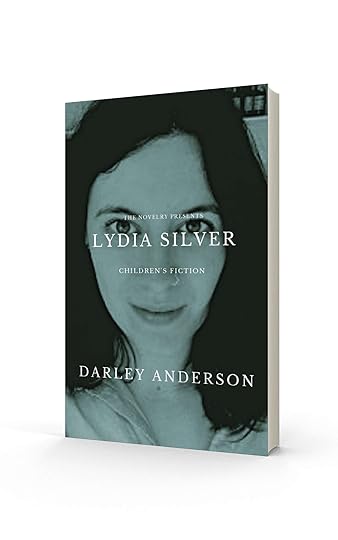
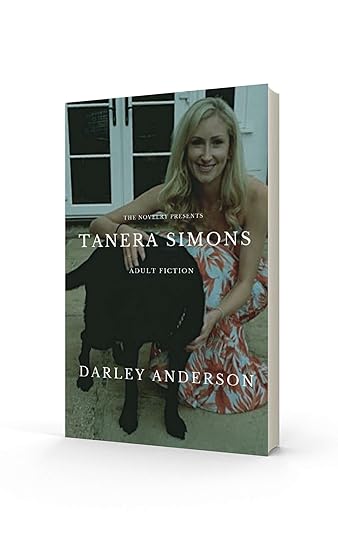
Tanera Simons is building a women’s fiction list. She is a huge fan of commercial romances, and has a particular passion for strong female leads and authors with a unique voice.
Lydia Silver represents children's and YA, she loves working editorially with writers and is always on the lookout for new talent. Lydia represents clients in the UK and the US including Dominic Beesley, Rachel Morrisroe and our Rashmi Sirdeshpande. Lydia is actively looking for submissions from Black, Asian and Minority Ethnic, LGBTQ and all other under-represented writers.
"I’m particularly looking for middle grade (as I’m sure many other agents are!), although I’ll also consider picture books and YA – but for both of these, they have to be utterly stand-out as the market is so difficult. And then in terms of tastes, we’re a very commercial agency, and so although I do love beautiful literary work, it’s a bit trickier for me to represent. I love funny books, adventure stories, a bit of fantasy – probably more middle grade than high-end YA – and anything that’s got a lot of heart and is quite moving. I’d love to find a diverse Louise Rennison YA, a really propelling MG adventure, or a female-led funny story in the Tom Gates arena. And if you ever get anything that feels like Northern Lights, I will bite your hand off to see it. It’s my favourite book in the world."
DHH Literary Agency
Founded by David H Headley in 2008, this team of passionate book lovers with a huge commercial client list are devoted to finding new talent and growing writing careers.
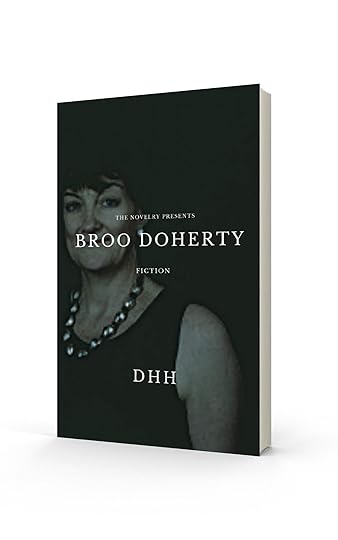
Broo Doherty particularly enjoys crime, women's commercial fiction, and literary fiction. In 2017 she was voted Literary Agent of the Year at the Royal Novelist's Association.
Johnson & Alcock
Into their sixth decade, Johnson & Alcock boasts a vibrant list of fiction for both children and adults, and are proud to represent prizewinning and bestselling authors across the genres in the UK and internationally.
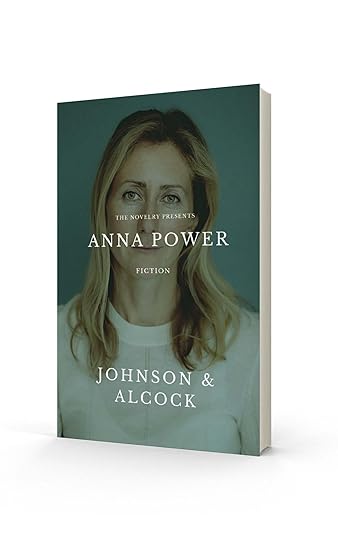
Anna Power is the MD of Johnson & Alcock and looks after a list of award-winning and bestselling novelists. She's looking for literary and commercial novels including thrillers, psychological suspense, historical and women's fiction. She favours great storytelling and a fresh voice, and enjoys discovering and working with debut writers. She also represents some children's fiction, from middle grade through to YA.
"I’m always on the lookout for new talented writers! I’m pleased to be working with you as you’re obviously doing great work at The Novelry."
Watson Little
Founded in 1970, Watson, Little Ltd is a long-established literary agency that offers a full service to its clients across all aspects of media. It has an outstanding track record, and has represented a number of celebrated, bestselling and prize-winning authors over the years and handles an unusually wide range of adult, children’s and young adult fiction.
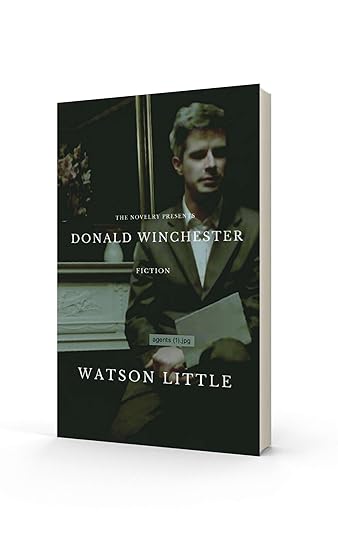
Donald Winchester began his publishing career at Penguin Press before moving to AP Watt. There he worked for five years with a number of acclaimed and prize-winning authors. He joined Watson, Little as an agent in 2013. He was the Secretary of the Association of Authors’ Agents (AAA) from 2017-19. Donald is interested in literary fiction and well-written commercial fiction, particularly debut authors, as well as memoir.
A.M Heath
The agency was founded in 1919 by Audrey Heath and Alice May Spinks, two women, both in their mid-thirties. An unmarried woman and a widowed single mother made an unlikely coupling in a literary world dominated by male heavyweights. Taking an office on Golden Square in London’s Soho and christening the company after their own names – the ‘A.M.’ came from Alice May, with Audrey donating her surname ‘Heath’ – they began business. Hilary Mantel was the agency's fourth Booker prize winner, with Wolf Hall in 2009. In 2012, its follow-up volume, Bring Up the Bodies, repeated the feat, making Hilary the first writer in history to win two Booker Prizes with successive novels – and the first to win with a direct sequel. A.M. Heath is passionate about great writing.
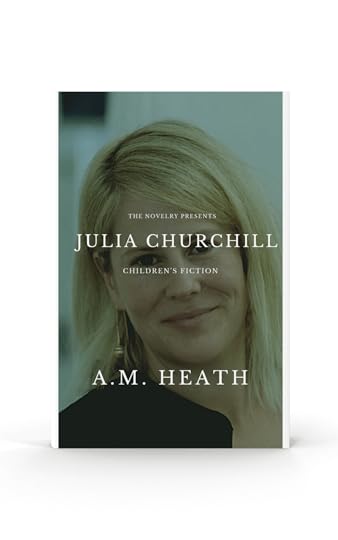
Julia Churchill joined A.M.Heath in 2013 to run the children’s department, after four years building up the UK side of the Greenhouse Literary Agency, and six years at the Darley Anderson Agency where she started the children’s book side of the list. She's looking for debut and established authors with storytelling magic, all the way through to YA. She'd love an animal story. From A DOG CALLED HOMELESS, to CHARLOTTE’S WEB, BLACK BEAUTY or WAR HORSE, she'd like a story showing an animal can be integral to the life of a child. Besides a breakout British YA author, a classic Middle-Grade fantasy series is on her wishlist. She's looking for the next THE LION, THE WITCH AND THE WARDROBE or HARRY POTTER. Those of you taking our Classic Course, take note! She would like to see world-building with playfulness and depth, and a ‘what-if’ at the heart of the concept. "8-12 fantasy that feels fresh and springs from the page". (I am sure we can help her, and soon.)
Brotherstone Creative Management
A full-service literary agency established by Charlie Brotherstone which represents novelists of commercial and literary fiction and includes New York Times and Sunday Times bestsellers.
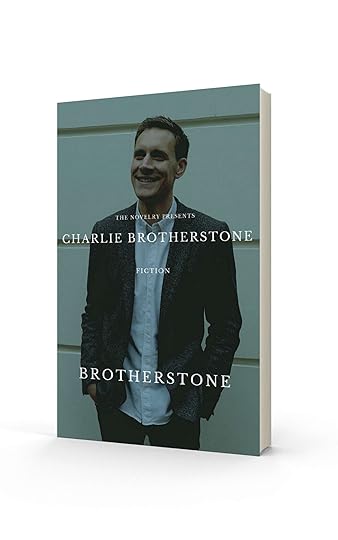
Charlie Brotherstone joined A.M. Heath in 2008, building a list of authors before moving to Ed Victor Limited in 2014. He founded his own agency in 2017 and represents our very own Tracey Emerson.
"Brilliant writing shines through regardless of genre and it’s been a privilege to discover new writers, reflected in the eclectic mix of authors with whom I’m lucky enough to work. I admire authors who amplify your experience of the world and have the power to change your view of it: J.G. Ballard, Hilary Mantel, Patrick Hamilton, David Foster Wallace, to name but a few."
Trident Media Group
We are now working in partnership with this formidable agency to find new talent. For more than ten consecutive years, TMG has ranked number one for sales according to the publishing marketplace in North America. The agency operates worldwide. TMG is the only U.S. literary agency to consistently be in the top ten in UK fiction and has ranked as highly as number one in UK fiction deals. Among the agency’s clients are Pulitzer Prize winners, National Book Award winners, The Booker, and winners of various other literary prizes.
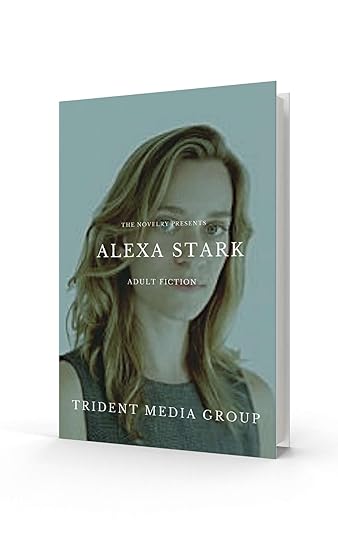
Alexa Stark earned her B.A. in Comparative Literature and Society at Columbia University. Before coming to Trident, she worked at PEN American Center and at Curtis Brown. She is particularly drawn to literary debuts with a unique voice and perspective, character-driven suspense and thrillers, stories about dysfunctional friendships and families, fiction that delves into the surreal and select YA. Above all, she’s looking for assured prose, captivating storytelling, and characters that come alive.
How it works.
At The Novelry, we are very proud of our relationships with highly-regarded agents and pleased to matchmake. We don't ask for any commission and have no financial interest in any arrangement, we want the best writers to get the agent who is just right for them, their work and career.
The experience of submitting work on my writers' behalf is exhilarating. I am able to praise my writers to the skies, in a way they can't if they submit direct. I can commend them to agents who trust they'll receive only la crème de la crème and as a writer who remembers the nail-biting process of submitting to agents, the process is gently cushioned and ultimately rewarding for my beloved writers who have been through the ordeal of having 'Miss' attend to their work through many rounds of endeavour!
We approach submission as partners, we agree a plan together and I submit when we are confident of success. It's a managed process, you're in safe hands, and I'm here to keep you smiling, and writing all the way home.

Louise x
Find out more about The Novelry's 'Miss Jean Brodie' here.
August 16, 2019
Take a note!
The late Barbara Cartland was a prolific writer, even in her eighties she was writing 23 books a year including A Virgin in Mayfair, Cupid Rides Pillion, The Frightened Bride, The Elusive Earl, The Disgraceful Duke and The Knave of Hearts.
She reclined on a red velvet sofa in the opulent library where, every afternoon, she'd dictate the next 6,500-word chapter of another book to her literary secretary.
“It’s less ponderous than writing."
She completed a novel on average every two weeks.
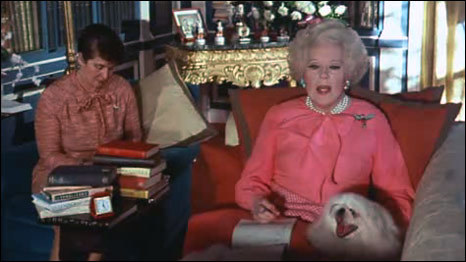
Alexandre Dumas (The Count of Monte Cristo) was also accustomed to dictating his novels to a secretary before they were fashioned into his acclaimed works. Stendhal dictated The Charterhouse of Parma to a secretary from Nov. 4 to Dec 26 1838, over 50 days.
Henry James used a secretary to transcribe his spoken words, ushering in a new era of productivity for him which culminated in The Wings of the Dove, widely regarded as one of his finest works. In the spring of 1897, rheumatism in his right wrist worsened and writing became painful. From then on, his routine was to dictate fiction in the morning hours to an assistant and make revisions in his own hand to the typescripts in the afternoons.
“I know that I’m too diffuse when I’m dictating... It all seems,” he explained, “to be so much more effectively and unceasingly pulled out of me in speech than in writing.”
Not only did James come to write more readily by the sound of his own voice, but eventually he required the accompaniment of the typewriter’s taps as well (his habit became so specific that the machine he used had to be a Remington—other makes, such as the Oliver which was too quiet for his taste, didn’t “work”). The scene of writing had become a place of sound.
Leon Edel, who wrote a five-volume biography of James, drew a line between the dictation and style of the late novels, “After several years of consistent dictating, the ‘later manner’ of Henry James emerged” with the effect of being able to hear “the spoken voice...henceforth in James’s prose, not only in the rhythm and ultimate perfection of his verbal music, but in his use of colloquialisms, and in a greater indulgence in metaphor."
Henry James was a stutterer. There are no transcripts or audio recordings of James speaking, but we have a quasi-transcript in Elizabeth Jordan’s teasing imitation, which she wrote down as follows:
‘Eliminating—ah—(very slow) eliminating—ah—eliminating nine-tenths —(faster) nine-tenths—nine-tenths of—of—of—(very fast) what he claims (slower) of what he claims—(very slow) there is still—there is still—there is still (very much faster) enough—left—e—nough left (slower) to make— to—make—to—make—a remarkable record (slow) a remark—able record, (slower) a remarkable record (very slow, with every word heavily emphasized).'
For James, once he was habitually in the practice of dictating, speaking was writing and writing was speaking. He told W. L. Phelps that he hoped his writing would become oral (again) in the hands of his readers.
'Drawn off into a corner of the room by Henry James, I spoke of testing a written style by reading it aloud; that I had found many passages in Browning which seemed obscure to the eye were transparently clear when I read them aloud. To my surprise, he became excited. With intense earnestness he whispered in my ear, “I have never in my life written a sentence that I did not mean to be read aloud, that I did not specifically intend to meet that test; you try it and see. Only don’t you tell.”'
For James, the test of 'poetry' was in the viva voce treatment. His brother, the philosopher, William James distrusted his brother's method: he called it rum, queer and perverse, condemning Henry James as a 'curiosity of literature'.
Dostoevsky dictated many of his novels to a stenographer - Anna Grigorievna. Under contract to produce a book to a tight deadline, and having gambled away his publisher's advance, he was contractually bound to pay off the advance if he failed to produce the work. His friends and family convinced him to put out a classified advert in a newspaper for a stenographer to take his dictation. Reader, he married her.
Winston Churchill was a dictator. 'A History of the English Speaking People' in four volumes was almost entirely dictated. He employed Patrick Kinna to take dictation straight on to the typewriter; there was a problem, however, as his typing was so fast the keys jammed, so a special portable typewriter was acquired with the keys shaved. Churchill bought an advanced Dictation machine in the 1940s, which purportedly was voice activated and the keyword was a profanity of which he was especially fond. Its manufacturer even today credits the great man thus: The Dictating Machine Co was founded in 1934 with the assistance of Mr Winston Churchill MP.
Dan Brown, author of the Da Vinci Code, reportedly dictates his rough drafts using Dragon software and edits at the computer.
Dictation software with voice-recognition sensitivity has come along way in recent years. You can dictate as fast as 160 words per minute! If you're on our recommended word count of 500-750 a day you could be done in 5 minutes. It doesn't bear thinking about does it? Personally, I prefer to loaf and idle and navel-gaze and ponder. But if you've got 'the voice' in your head and are writing a first-person narrative this method could help you capture the vitality of the narrative.
So, when it's time to hit the writing road and get that first draft down, maybe using dictation software is the fast lane?
What do our members think of dictation software?
Victoria Reeve, Australia.
Recently, I used Dragon by Nuance’s Speech app to write the first 2,500 words to a section of narrative, and it came out very well. It took less than fifteen minutes to dictate and probably twenty minutes to edit those 2,500 words into something presentable. I wouldn’t work like that all the time, but it’s great to have it up your sleeve and get ideas down as and when they come to you. Unfortunately, this app is no longer available but there are similar products out there. Of those available, I like Dictate Speech to Text. Both Dictate and Speech2Text will follow basic punctuation instructions: new paragraph, full stop, comma. I’m going with Dictate. It’s key features:
it keeps up with my rapid-fire speech;
though it makes mistakes because of my accent, I can decipher these readily enough (i.e., nothing so loopy that I can’t figure out what I said);
it converts speech to text very rapidly, it seems to be less than a second behind the speech;
the layout of the text is good (a full screen);
the icons and operating features are easy to understand, and
you can email the text or send it to Notes to edit.
I have an Aussie accent, and most apps have Australian English as a language option. Speech2Text doesn’t have Australian English. I tried the GB English and European English, and it seemed to cope as well as Dictate’s Australian English. To my mind, Dictate and Speech2Text are on par in the translation function.
The other apps I trialled were Speech2Notes and Mic or VoiceDictation but I haven’t been able to get Speech2Notes to work on my iPhone or iPad Mic or VoiceDictation is dreadful. It takes forever to translate short phrases and then it stops so it's no good for long stretches of dictation.
Cate Guthleben, UK.
I write longhand with a Pilot gel pen in Muji lined notebooks. I’m very particular about it. I like the way the ink flows on the smooth paper. I like the way my ideas flow from brain to page without a squiggly red or blue line to distract me. The only drawback is that I have to keep on top of the typing up. I left the typing of my first Novel in Ninety Days until the end and it took me almost as long to type it as it did to write it. This second time around I’ve learnt my lesson. I write in the mornings and type up in the afternoons.
Except I don’t really type. I use speech recognition software. I tried the free ones that came with my laptop but literally could not get a word out of them. I went online, researched the reviews of the paid versions, and bought the one that came out on top. It’s Nuance Dragon Naturally Speaking Premium version 13. I went old school and bought the CD version but it comes as a download too. Mine came with a headset microphone but I bought a freestanding one that plugs into my laptop – a Snowball Ice.
Dragon software learns as it goes. You don’t have to do spend hours training it to get used to your voice. It recognises different accents too. The commands are straightforward and there are tutorials, prompts and a toolbar. It’s easy to add unusual words and names. It really couldn’t be simpler. I can dictate thousands of words in an hour. As with most software, I suspect I am only using a fraction of its capacity. If I wanted, I could make my whole laptop hands free.
My purchase was timely as I fractured my shoulder soon after I bought it. Luckily, it was my left shoulder so I could still write, but there is no way I could have typed a ninety thousand word novel with one hand. The habit has stuck. I’m doing rewrites now and find I dictate anything longer than a couple of sentences.
A friend has just been advised by her agent to read her novel aloud. By using dictation software, I have already done that. As I dictate, I pick up repetitions and know when a sentence is overcomplicated or too long. My typed version becomes D1.5.
A couple of gripes:
· You have to read over what you’ve dictated. It’s best to do it as you go, when you still know what you were trying to say. It gave me condom for quandong, for example.
· Some words are impossible and it’s faster to type them yourself than scream them over and over into the microphone.
· It has some annoying habits: writing to for too; capitalising words that might be surnames, such as black. ( A computer program is only so smart.)
I highly recommend it. I can’t imagine writing a novel without it. Just remember to send it to sleep before you answer the phone.
Eliza French, USA.
Three important goals were solved with quality dictation software:
I wanted to work writing into my busy schedule of long workdays, household and family obligations and health and fitness needs.
Some nights when I finally sat down to write, all I was left with was stiff, formal writing - a remnant of my corporate job. I wanted to relax into my first draft and write natural, flowing prose.
I'm determined to write a first draft that isn't rule-bound. I wanted to leave the editing for future drafts, but the temptation sometimes got the best of me.
The winning combination I discovered is using my Bose noise-cancelling headphones (which feature a very powerful microphone) with an app called Dragon Anywhere, by Nuance. Yesterday I dictated a scene while cleaning the kitchen and loading the dishwasher. Today I dictated more than 1500 words while on the elliptical at the gym. Granted, I was the crazy woman talking to herself, but I'm okay with that.
Although I'm still in the free trial phase, and despite being very sceptical at first, I do believe I will pay the $15 a month for Dragon Anywhere. I spent some time this morning comparing the writing I did on the computer to the writing I've done via dictation. Not only am I writing more with dictation in a shorter period of time, I'm much happier with the results. The software works like a dream with only the occasional mistake. One difficulty is getting the software to recognize unusual character and place names. There is a "learn word" function in Dragon Anywhere, but I haven't had success with it yet. It gets the name Saskia right 100% of the time, but Anka (my protagonist) ends up as uncle 90% of the time and Anke the other 10.
I've just dictated the second paragraph of this review using the standard iPhone dictation service and the Dragon Anywhere software. Take a look at them side by side. I think the difference is incredible!
So it seems Dragon has the edge on other dictation software.
You can save $20 off Dragon Professional Individual with the code NOVELRY20 at checkout.
Buy Dragon Professional Individual UK here.
Dragon Professional Individual US here.
Buy Dragon Anywhere UK here.
Buy Dragon Anywhere US here.
Then settle down in your library, recline, and sample the truffles as you create your great work - I leave you with the opening lines of Barbara Cartland's 'Temptation of a Teacher' her 227th novel.
'“I am sorry, Lady Arletta. I am afraid it gives you very little time.”
“Very little, Mr. Metcalfe.”
Lady Arletta Cherrington-Weir gave a deep sigh and her blue eyes were wistful.
Mr. Metcalfe, a precise middle-aged Solicitor, thought that, if it was in his power, he would do anything to sweep away the worried look on her young beautiful face. He had known Lady Arletta since she was an infant in a perambulator and had watched her grow up, becoming in doing so lovelier year by year.
He thought now that it was impossible for any young woman of twenty to be more enchanting and so completely unselfconscious and unaware of her own attractions.'
August 10, 2019
Over Here, Overachievers!
Many of my beloved writers suffer from a sickness called overachievement - 'the curse of the capable'.
It's a condition for which there seems to be no cure, and yet perhaps there is.
Both intelligent and intuitive, overachievers find their way to The Novelry because they have a feeling the cure is inside the long story. And they're right.
As we all know, stories have many therapeutic benefits either en masse or taken one at a time. We explore the 'eucatastrophe', the deliverance from evil, described by Tolkien in the Classic Course, and look too at what life problems and psychological ills were chronicled in fairy takes. A little bit of 'doctor heal thyself' is prescribed in the Classic Course which asks you to dig deep into your experience and first loved stories to find the seed of the story you need to write. The translation of your 'wound; into fiction is healing; you hold the problem at arm's length, name it and deal with it.
Overachievers throw themselves at their novel-writing most diligently when they take The Ninety Day Novel Course, but they don't dawdle in the shallow end to find out more about the techniques of staying afloat in a novel, they're on the top diving board fast. My worst writing habit is showing off incorrigibly. I'm the fool on the top diving board. In my opening chapters, I am giving it all my long words and best tricks, and this is why I am a slow and uneconomical writer, because I have to write so many drafts to get the hell over myself, and simply tell the story, and say what I see. But for too long before I get real, it's all pizzazz contrived to have people craning their necks, and it's ghastly.
The wonderful thing about teaching is, of course, the ability to see your flaws and failing in others and warn them they're creating trouble for themselves.
Let me tell you about my overachievers so you can work out if any of this applies to you, then I'm going to give you the cure.
According to psychologist Arthur P. Ciaramicoli, there is a "curse of the capable," which is "a complex web of emotions that drives people to hide their genuine needs behind a mask of over-achievement." He claims people often seek "the "quick fix" of over-achievement to compensate for wounded self-esteem... Chronically-overachieving people often don't realize unrecognized needs are driving them from the healing conditions necessary for fulfilled lives." Overachievement is "the drive for status to overcome psychological wounds."
Here are the attributes my overachievers share:
- they're already proficient as artists, often writing professionally (or at work to a high standard) and have been or are formally involved in the arts
- they're funny, candid, self-deprecating and to all appearances very relaxed
- plus they have a day job that's demanding and a relationship and kids and....(etc.)
- when it comes to their writing, they want to be well-reviewed, well-regarded and they do not want to associate with clichés. They're looking for a high-concept pitch. Or eight.
Although the elevator pitch lends itself best, being one sentence, to a few words to convey one idea, my overachievers tend to shoehorn several good ideas into it, so that the whole thing sounds lame, apologetic and noisy, and rather a drag. (Clue - one good idea is better than two.) Sometimes, a story about a boy who loves his mother is what we want to read. But overachievers won't have it. They want everyone to love them, so they conspire to be all things to all people.
But not in any dumbed-down kind of way. Oh no. My overachievers abhor anything corny, so it's all got to be original death-defying, jaw-dropping stuff.
Thus we have first chapters which pull punch after punch in purple prose.
What overachievers cannot accept is that readers like simplicity and they're not appalled by cliché at all. One or two can make a person feel quite at home. They don't mind them, they're partial to one or two with a cup of tea.
So, why does it never strike the clever overachiever that others also like to feel clever?
The reader likes to feel clever. He or she like to join the dots and feel good about themselves. The reader doesn't want to spend a few hours thinking how clever you are, the author, when she could be thinking how clever she is.
It seems to me that successful writers, offering viable commercial novels, know this.
Hey, I say to my writers, that first chapter with 53 big ideas in it, you know you have a few books there (and a life of pent-up self-loathing)? You could roll with just one and let us come into the home of the novel and put our feet up? If you focus on the main character and let us see them - not necessarily being extraordinary - but so that we feel something for them then you've probably done a good job for chapter one.
There's no need to rush at it. I see a lot of novels getting written and the writers who do best, don't thresh about in agony, breaking and burning one draft after another, they proceed with prodigious sluggishness. They write - as did Greene and Hemingway - a regular daily 500 words or so using the hours in between to refresh them, and keeping close to a well-considered path. When we get you settled into your story at The Novelry (once we've got the premise sold and commercially viable) we put you on a word diet of 500 words a day (in the hour's writing time) and increase that to 750 after a few weeks. It's counterintuitive perhaps, but it works.
One of my writers recently produced a thrills-and-spills first chapter - and was very gloomy about it. I said to her - if you want to finish the novel this year, you're going to have to go more slowly.
Overachieving is a condition for which no success can provide a salve. You'll simply raise the stakes when you get the prize, because you're running from an old hurt, the idea that you're not good enough, planted somewhere back in childhood when your success seemed to make the people you love, love you more obviously. You're a praise junkie.
It's a noose around your neck. The more you try to excel, the tighter it seems to get until you feel that you can't breathe, and it feels just like the very thing you fear most; failure. A lack of oxygen, the obliteration of your meaning and existence; death. You're dying to succeed.
But the cure is inside the story. So you're almost home.
The novel is a form of story which provides the ultimate therapy. Now, you're not to apply it neat - you're not writing a story about you. It won't work. But you can take the worst parts of yourself, those which you won't own in daylight and good company, and give them to one of your cast and treat them for it in the story.
A story is a beautiful lie, and the novel pretends that people can change. I am not clever enough to tell you if they can or do. Possibly they can, possibly not. Perhaps that's why fiction is so necessary; it's our last best lie.
Your novel takes the thing you fear most, the part kept concealed, and grafts it onto someone not like you, and you the author play God or the doctor and treat it.
"What people are ashamed of usually makes a good story." F. Scott Fitzgerald.
Every novel is a moral journey which concludes with the patient finding themselves beloved on this earth. Usually humbled, occasionally exalted, sometimes at home, sometimes in a strange place, but they arrive at a place not of genius or outstanding insight, but self-acceptance.
What a tonic for the exhausted overachiever!
So it's no surprise to me that so many overachievers pitch up at The Novelry. No need for a Twelve-step programme. We need never speak of your affliction, we will give you the promotion you need, rather than the one you want, to being the doctor who cures others. That will do the trick, and give you long-lasting relief.
"And now that you don't have to be perfect, you can be good." John Steinbeck.
And we will put you on a sensible word plan for healthy writing ever after. Go slow, and be good.
The Good News - a Happy Ending.
Performance Psychologist John Eliot wrote the book on the subject.
"Overachievers," he insists, "don't think reasonably, sensibly or rationally."
It's not rejection that distinguishes achievers from nonachievers—it's the way they handle failure.
"They get excited about learning so they can turn weaknesses into strengths."
Come on in overachievers; we're ready for you!
We'll be welcoming new members in the coming days, to get their preparation in place to start to write the first draft of their novel in 2019. I'll be with them not only in spirit, as I start work on my sixth novel and write alongside you.
Your plan for a 2019 jam-packed with achievement?
Sign up to The Classic Course to make a plan now, or The Ninety Day Novel ® to prepare to write your novel starting this September. If you're not sure which is best, simply book a free fifteen-minute call with me to talk about your writing and what you have in mind in the way of overachievement in 2019.
August 3, 2019
Lost and Found. A Member's Story.
A bonanza week with one of our novelists hitting the shortlist of five for The Bath Novel Award 2019. There were 1343 entries so this is a very meaningful coup. We are all beside ourselves with excitement at The Novelry, and hoping our beloved friend will scoop the prize on September 19th as she deserves.

Congratulations to our beloved graduate Rashmi Sirdeshpande on publication of her book "How To Be Extraordinary" courtesy of Penguin Books.
We always have plenty to cheer about, even on a slow day, and this week a number of our writers finished their novels - Jane, Andrew, Jacqui and Aprajita. Well done to all of you.
This week's blog is courtesy of one of our member's, Kate Tregaskis.
Getting Lost. (A Member's Story.)
I’ve been writing my current novel for approximately three hundred years. Having written and finished one before, inexperience is not the problem. In fact, I have also finished this one, a few times. But it has bounced back from agents with the feedback that: there isn’t enough of a plot; more needs to happen; the book is ‘not enough of a ride.’
Trawling the internet earlier this year, I came across The Novelry and more specifically the editing course. It seemed just what I needed. For good measure, I signed up to the community too. Fast forward a few months and I was in full swing, getting up early to write, more focused than I’d been in ages and feeling like I was making steady progress. At last, I could see what I needed to do to corral my 70,000 or so words into something that resembled a story.
And then the shit hit the fan. My partner had a stroke and ended up in hospital (4 months later he’s still there, learning to walk); work got more pressurised with other people’s jobs dependent on my efforts, and then the school holidays started.
When my friend M texted, saying she was having a horrible time finishing her PhD, with a deadline looming, and why the hell hadn’t we seen each other recently? I suggested that we run away together.
We looked at hiring a cottage on an island but instead, at a crazy last-minute discount, we booked four nights at a spa hotel in a forest.
There is something about going to an unfamiliar place, venturing apprehensively into the unknown, which mirrors the experience of writing. I sat on the bus worrying that I'd made an expensive mistake: What if the hotel was noisy? What if the bed didn’t have a headboard (I write in bed)? What if the view was rotten? What if M and I talked too much and wrote too little? What if, given I had so much other stuff to take care of, this was just a vanity project?
The hotel was enormous - a happy mixture of grand Victorian and high-class youth hostel, with forest all around. It felt unpretentious, tired but loved and, as became evident over the course of our stay, a bit of a local institution in the best possible way. The weather forecast – torrential rain - was perfect. The view from the bed was of sky and trees that got progressively greener and bushier as the rain poured and internet access in my room was intermittent, helpfully making procrastination more difficult.
The stage set, our DIY retreat followed a narrative structure. Having arrived and got orientated, we dragged our writing selves to the trough and urged them to drink. But after attempting to list all the scenes across the novel’s five sections looking at cause and effect, and jiggling things around a bit, I was hit by the enormity of the task ahead. How was I going to make even a dent in what needed to be done within the few days I had when I still hadn’t resolved some of the most basic questions? Past or present tense? First or third person?
This was an incredibly precious opportunity to make headway, but where was I going?
Having hit a wall, I sent up a distress flare via The Noverly Group. Within minutes, The Novelry folk were on the scene. I was talked down from my panic and given kind and insightful opinions. Most importantly though, I was reminded that I wasn’t alone.
In my forties, when I was trying to work out what I’d be when I grew up, I did a part-time course in person-centred counselling. Getting paid handsomely to listen to other people mull over their stories seemed like the perfect job for a wannabe writer. We practised in triads – taking it in turns to be either counsellor, client or observer. The most difficult skill to learn was listening. Hardwired to put an end to the pain of others (possibly because it triggers pain in ourselves) most of us chip in with helpful solutions at every opportunity. The course tutor described the counsellor/client relationship as like sitting companionably on a boat together, in the middle of a loch, possibly shrouded in mist, the counsellor listening with unconditional positive regard. This special deep listening is a magic medium. Like agar jelly, it provides the conditions in which things, in this instance ‘change’, can seed and grow.
This is what the hive-mind of The Novelry community is like: democratic, diverse, experienced, insightful, generous, collaborative and creative.
Safely back on course, armed with the courage to stay with it, what did I learn from a more intensive period of writing? The daily discipline of an hour a day is a fantastic way to keep things moving, one chunk at a time. Those few days away however enabled me to step back and look at how these chunks join up. I began to see how scenes and actions, like dance movements or musical notes or phrases, come alive as part of a flow, their effect dependent on what comes before and what comes after. Having spent months concentrating on individual scenes, it was great to feel the story grow, join up and move forward.
Related to that, I started to really appreciate the necessity for - and joy of - tension. Maybe to date, my writing has been too eager to please, too eager to deliver a punch line, too set on gratification. But what if great writing is mostly teasing? What if it’s about playing with the reader’s expectations? What if a resolution is like the brow of a hill, that when climbed, merely reveals the next brow. What if resolutions can be infinitely, deliciously delayed? What if my inclination to be a good host, making sure everyone is comfortable, that the reader is not kept waiting, that they are not in pain, is actually the opposite of what anyone, myself included, wants from reading?
One day, when the rain stopped M and I went for a walk. We set out to climb a hill, but instead took a wrong turning and quickly became lost. There were millions of mountain bike tracks, marked by colour coded signposts that had dispensed with distances or place names. I got blisters and M felt sick. We arrived back at the hotel, after being out far longer than we intended, irritated and frustrated at how we had been defeated by this unknown, unmarked terrain, whilst our time to get work done was ticking away.
The next day, I went out on my own and climbed a forested hill that again had no signposts. This time I braved the smaller tracks, more like animal tracks, and persisted, zig-zagging through the trees. I got to the top just as the sun came out, lighting up yellow fields being grazed by newly shorn sheep that looked like goats. That day I decided to book an extra night (M went home as planned, having secured an extension to her deadline) and I sent my partner a text:
I have decided to live here. I will miss you all, but don’t worry, I’ll get over it.
He sent a text back saying: Ouch xxx
I have been struggling to find the end of my novel. At times it feels like a ball of wool that could continue to unravel forever. Something about my revelations – about the exquisite pleasure of drawing things out, about staying with the uncomfortable - meant that it dawned on me that an event which happens in the middle of my novel could work better at the end, thereby deliciously elongating the action, forcing the reader to stay in it, stay with the discomfort, making sure they feel hungry before offering even a hint of gratification. Maybe the difficult middle (the muddle) in what I was writing, this disorientating place where I kept getting lost, what if this place was the destination? What if the middle, was actually the end, hiding in plain sight?
In ‘A Field Guide to Getting Lost’, Rebecca Solnit writes: ‘That thing the nature of which is totally unknown to you is usually what you need to find, and finding it is a matter of getting lost. The word “lost” comes from the Old Norse los, meaning the disbanding of an army, and this origin suggests soldiers falling out of formation to go home, a truce with the wide world.’
On my last morning, I got up, wrote looking out over the forest one last time, and then took the bus home. My son, back that day from his holiday, was eager to chat and when I phoned my partner (we'd agreed on minimal contact when I was away), he took a wheelchair taxi from the hospital and showed off his newly learnt stair-climbing skills by managing to reach my first floor flat. We ate a meal together. Later, when my partner had checked back into the hospital and my son was in bed, I took a look online for my next opportunity to get lost.
Kickstart Your Novel This Autumn
We are offering five writers the chance to enjoy The Complete Novel Course free when you sign up for The Bridport Retreat 5-11 November.
This means that if you sign up before 7th August, you will have a first draft of your novel in your hands when you join us in Dorset, and Louise Dean will be on hand to work alongside you in a special session to play your path to publication.
'One of the world's top ten best creative writing holidays.' The Telegraph.
Our writers' retreats and courses are set in a beautiful manor house in rural Dorset, not far from the sea. All the things you could ever want for your dream writing retreat; lovely private rooms, log fires, personal writing space, great food, beautiful scenery, lively chat or rural solitude.
Your story starts here.
Sign up today, and relax. You'll be guided daily and you don't start writing until seven days into the course when you're prepared and we've got the story straight. A nice easy stroll into a lifetime of happy writing!
July 31, 2019
On The Shortlist!
We are delighted to announce that one of our members, who wrote her novel with The Ninety Day Novel course, is on the shortlist of five novels for The Bath Novel Award 2019.
There were 1341 entries to this prestigious literary award for the best novel and we are all slightly giddy at The Novelry with excitement for our friend. It is so well-deserved!
September 16, 2017
This is the life.
Can you write a first draft of a novel in 90 days? Yes and you should. Will it be ready for publishing? No, it’s a first draft. You will have everything you need for the second draft and something else, something much bigger, much sooner than 90 days...
You will have the life you always wanted. One that makes you feel fulfilled. This comment from one of my writers yesterday, at day 13 of her writing with us, says it all:

Very quickly, Kritikme writers learn how to make writing part of life, no matter the circumstances of work and childcare, or the to and fro of duties and desires.
There is a commonality to the writing writer’s writing life. It is a love of reading and the joy of the craft and getting better at it.
The joy of the craft comes from daily tickling. Tickling that joy with good habits and wise reading is what we do at Kritikme for 90 days on the trot, then it’s there for life.
A funny bone, on the house.
It took Annie Proulx almost 60 years to write a novel. In the video interview, she says she's still learning; it's her life.
Proulx briefly went to college in the early 1950s, but left to get married. There were two further marriages, all of them unhappy. She raised three sons alone. It was a time of grinding poverty.
'I had a talent for choosing the wrong people . . . I'm just the sort of person who should never be married. I like living by myself. It's odd, but I think in my whole life I have had almost no one understand what I was trying to do with the writing, or why it was so intensely important to me. So it was always something that I kept to myself; not a secret vice, but certainly a secret pleasure.’
'I was always a reader - an omnivorous, greedy one. It's probably natural for readers to move into writing, and that's essentially what happened to me. When I finally did have some time to explore what I liked to do, I knew it certainly wasn't going to be an academic life of any sort. Creating people out of nothing and putting them on paper seemed like an amusing and interesting thing to do. And I could continue with research. So it was more a redrawing of myself in another persona.'
To write, Proulx rises at 4am, lights the fire and makes coffee. She writes by hand, adding phrases and looping new words into the margin; she claims that it is easier to make a natural judgement of the material that way. She writes until about 11am, and in the afternoon types up what she has written. She reworks over and over, attacking each slack sentence sometimes 30 or 40 times.
Her life is sustained by books. And books - novels, dictionaries, biographies, mysteries and scientific arcana - spill out of every shelf.
'Writing novels is a great deal of fun. The play element in it for me is very large.'
The Shipping News was an experiment in writing a novel with a happy ending, after Proulx had received feedback that her first novel seemed dark. She set out to explore a kind of happiness based on the absence of pain instead of the presence of euphoria or glory.
‘The entire book is set up to make a lack of misery seem like blinding happiness. At the same time, that is what most of us settle for in life -- a situation that may not be ecstatically glorious and joyful but is nonetheless not painful. ‘
She likes to place her characters against a backdrop of great "mass"—whether it be an overpowering social change or a massive landscape.
Proulx credits The Ashley Book of Knots for helping this novel idea take shape. She found the book at a yard sale for 25 cents. The Shipping News took three years to write. It began with her first trip to the Great Peninsula in 1988, where she was totally overcome by the uniqueness of this geographic setting. The book was the result of nine extended trips to Newfoundland. She felt deeply fascinated by the harsh living conditions and the warmth of the old fishing families. The rising tension between centuries of isolation and the invasion of modern civilization offered her a natural conflict around which The Shipping News came into being. By the time Proulx finished her manuscript, the northern cod stock were at a point of near-distinction. The fishing industry that had sustained Newfoundland for hundreds of years is at a point of disrepair.
Why is writing good for us?
‘Imagination is the human mind's central life strategy. It is how we anticipate danger, pleasure, threat. The imagination is how our expectations are raised and formulated; it excites and ennobles our purpose in life. The imagination blocks out hunger, bodily harm, bad luck, injury, loneliness, insult, the condition of the marooned person or the orphan, grief and disappointment, restlessness, desperation, imprisonment, and approaching death. And from the imagination spring the ideas, the actions, and the beliefs that we hold.’
Let's recap:
1. A novel doesn't get written in 90 days, a first draft does. But good habits take shape in 90 days, and the writing life will take hold of you.
2. Annie Proulx waited 55 years to live her life the way she wanted to. You may well be ahead of her?
3. Because she so loved writing, she gave her only son. (Poor old Quoyle.) She gave him her first ever happy ending (his too.)
None of us are going to write like Annie Proulx. Or Tolstoy. We're going to write like only we can about things only we can, because our experiences and natures are unique. That's more than good enough. It's wonderful.
Here's what's happened to my writing thanks to Annie Proulx:
Annie Proulx's writing is intensely constructed such that every single line is a mind blower. It's poetic. It's bizarre. It's honest. It's imbued with the method of a painter. It takes a lot of work. There is no throwaway sentence or at least I haven't found one and I challenge you to. This is derived from her long-standing and painstaking work as a short story writer. When it comes to firework poetics, I don't think there is a writer who can hold a candle to her.
However, as I said, it's intense. It's a touch tiring to read it. A touch defeating. Until you forget about it and accept that's how she writes and it's meant as a gift to see how she sees.
When you get over the genius of it, this is what happens to you without knowing it; you wake up, and you see.
I feel like my slumbering cast got the early morning alarm clock in their ears. I am seeing them more lucidly and truly and they don't have to behave to my regimen anymore, they can have their own lives.
My biggest insight of this writing year I give to you.
I love writing, just like Annie Proulx does, and I hope to write a lot better than I do now. THIS is the life I want. Writing daily. reading nightly. I love the craft. I do a day job, I treat the kids and cat with the same mixture of buffoonery and care, and I write and I hope to get better at writing.
Perhaps your goal is to be published, 'famous’ and feted. It’s not all it’s cracked up to be. Maybe you have all you need right now?
Proulx explains it...
'It's not good for one's view of human nature, that's for sure. You begin to see, when invitations are coming from festivals and colleges to come read (for an hour for a hefty sum of money), that the institutions are head-hunting for trophy writers. Most don't particularly care about your writing or what you're trying to say. You're there as a human object, one that has won a prize. It gives you a very odd, meat-rack kind of sensation. In terms of interruption of work it's absolutely devastating -- unless one can say no. At first I couldn't say no and I did a lot of things that I shouldn't have. When you get through with travel and hassle and rushing about and shaking people's hands, that "one hour" usually translates into three days. And if you're working on a piece of writing, once three days are torn out it can be quite difficult getting back to where you were before the interruption came. It is possible to make a living not through writing but through celebrity appearances. Some writers do it. But writing is utterly absorbing for me, and I resent anything that pulls me away from it.'I'm not writing to bag the golden egg. I've got it in my basket.
You have the life you want, go write.(Don't miss the video clip in the image above!)


